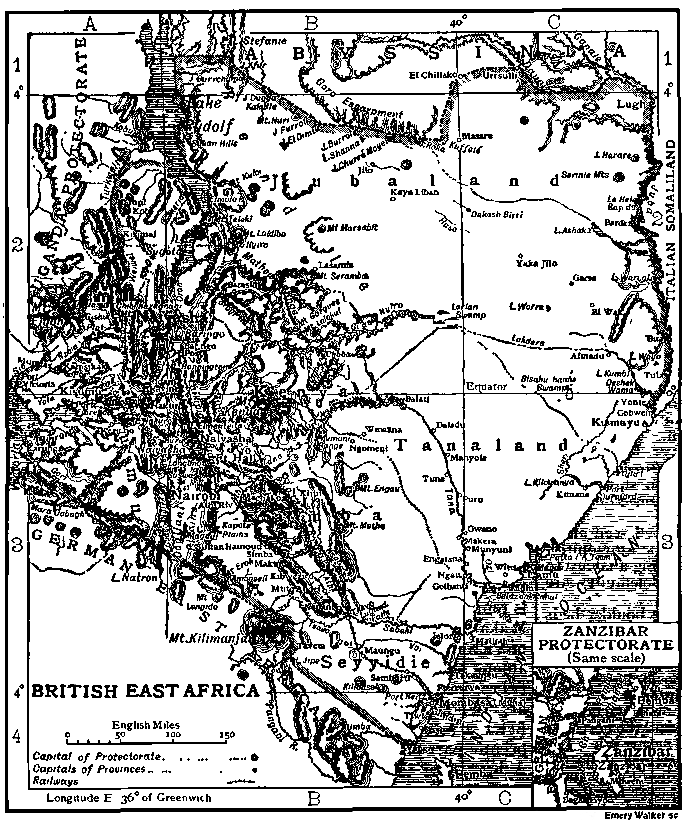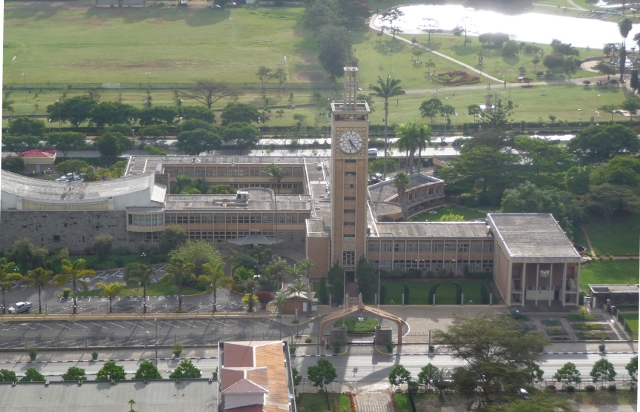|
Waki Commission
The Waki Commission, officially The Commission of Inquiry on Post Election Violence (CIPEV), was an international commission of inquiry established by the Government of Kenya in February 2008 to investigate the clashes in Kenya following the disputed Kenyan presidential election of 2007. Background The Kenyan presidential election of 2007 was held in December 2007. The main contenders were incumbent President of Kenya, Mwai Kibaki and his former ally Raila Odinga. The election was strongly marked by tribalism, with Kibaki coming from the most numerous Kikuyu ethnic group which has dominated Kenyan politics since independence and Odinga an ethnic Luo allied with other smaller ethnic groups. Kibaki was declared the winner and sworn in on 30 December, despite opposition leader Raila Odinga's claims of victory. Odinga and many international observers claimed the elections were at least partially manipulated. Following the declaration, violent protests erupted particularly in K ... [...More Info...] [...Related Items...] OR: [Wikipedia] [Google] [Baidu] |
Government Of Kenya
The Government of the Republic of Kenya (GoK) is the Central government, national government of the Kenya, Republic of Kenya located in East Africa. It is composed of Counties of Kenya, 47 Counties, each county with its own semi-autonomous governments, including the national capital of Nairobi, where the national government is primarily based. The national government is composed of three distinct branches: The Parliament of Kenya, Legislature (Parliament), the #Executive branch, Executive and the Judiciary of Kenya, Judiciary. Each arm is independent of the other and their individual roles are set by the Constitution of Kenya while their powers and duties are further defined by Act of Parliament, acts of Parliament. Naming The full name of the country is the "Republic of Kenya". Its official Swahili language, Swahili name is "Jamhuri ya Kenya". No other names appear in the Constitution, and these are the names that appear on the country's currency, in treaties, and in legal ... [...More Info...] [...Related Items...] OR: [Wikipedia] [Google] [Baidu] |
Kriegler Commission
The Kriegler Commission, officially The Independent Review Commission (IREC), was an international commission of inquiry established by the Government of Kenya in February 2008 to Inquire into all aspects of the 2007 General elections with particular emphasis on the presidential elections. Background The commission carried out its mandate in the aftermath of the 2007–2008 Kenyan crisis. Terms of Reference The terms of reference were as follows: * To Analyze the constitutional and legal framework and identify weaknesses and inconsistencies in the electoral laws; * To Examine the organizational structure, composition and management system of the ECK; * To Examine public participation in the 2007 electoral processes; * To Investigate the organization and conduct of the 2007 electoral operations including civic and voter education among others; * To Investigate vote counting and tallying at all levels: and * To assess the functional efficiency of ECK to discharge its mandate. M ... [...More Info...] [...Related Items...] OR: [Wikipedia] [Google] [Baidu] |
Ethnic Conflicts In Kenya
Ethnic conflicts in Kenya occur frequently, although most are classified as minor skirmishes. A significant increase in the severity of such conflicts between the various Demographics of Kenya, ethnic groups inhabiting the country was witnessed after the introduction of multi-party politics in the early 1990s, especially during the 2007–08 Kenyan crisis. Major conflicts have also led to exoduses of ethnic minority communities with roots in other geographical areas. Factors Several factors have been identified as the source of outbreaks of communal violence among populations living in close proximity to each other. These include: *History of Kenya , Colonial Policies *Political Instigation *Availability of Land (economics), Land *Access to water and pasture resources *Loss of traditional grazing land *Cattle raiding in Kenya *Lack of alternative sources of livelihood *Fears of terrorism *Harassment *Theft and extortion Nationwide conflict The most significant conflict witnes ... [...More Info...] [...Related Items...] OR: [Wikipedia] [Google] [Baidu] |
History Of Kenya
A part of Eastern Africa, the territory of what is known as Kenya has seen human habitation since the beginning of the Lower Paleolithic. The Bantu expansion from a West African centre of dispersal reached the area by the 1st millennium AD. With the borders of the modern state at the crossroads of the Bantu, Nilo-Saharan and Afro-Asiatic ethno-linguistic areas of Africa, Kenya is a multi-ethnic state. The Wanga Kingdom was formally established in the late 17th century. The Kingdom covered from the Jinja in Uganda to Naivasha in the East of Kenya. This is the first time the Wanga people and Luhya tribe were united and led by a centralized leader, a king, known as the Nabongo. The European and Arab presence in Mombasa dates back to the Early Modern period, but European exploration of the interior began in the 19th century. The British Empire established the East Africa Protectorate in 1895, from 1920 known as the Kenya Colony. During the wave of decolonisation in the 196 ... [...More Info...] [...Related Items...] OR: [Wikipedia] [Google] [Baidu] |
Politics Of Kenya
The politics of Kenya take place in a framework of a presidential republic, whereby the president is both head of state and head of government, and of a multi-party system in accordance with a new constitution passed in 2010. Executive power is exercised by the executive branch of government, headed by the President, who chairs the cabinet, which is composed of people chosen from outside parliament. Legislative power is vested exclusively in Parliament. The judiciary is independent of the executive and the legislature. In Kenyan politics, the executive wields considerable power and other institutions have limited means of checking that power. The Political terror scale gave the country a rating of 4 meaning that civil and political rights violations had expanded to large numbers of the population. Murders, disappearances, and torture were common parts of life. Executive branch , President , William Ruto , United Democratic Alliance , 13 September 2022 , - , Deputy Presi ... [...More Info...] [...Related Items...] OR: [Wikipedia] [Google] [Baidu] |
Kenya
Kenya, officially the Republic of Kenya, is a country located in East Africa. With an estimated population of more than 52.4 million as of mid-2024, Kenya is the 27th-most-populous country in the world and the 7th most populous in Africa. Kenya's capital and largest city is Nairobi. Its second-largest and oldest city is Mombasa, a major port city located on Mombasa Island. Other major cities within the country include Kisumu, Nakuru & Eldoret. Going clockwise, Kenya is bordered by South Sudan to the northwest (though much of that border includes the disputed Ilemi Triangle), Ethiopia to the north, Somalia to the east, the Indian Ocean to the southeast, Tanzania to the southwest, and Lake Victoria and Uganda to the west. Kenya's geography, climate and population vary widely. In western, rift valley counties, the landscape includes cold, snow-capped mountaintops (such as Batian, Nelion and Point Lenana on Mount Kenya) with vast surrounding forests, wildlife and ... [...More Info...] [...Related Items...] OR: [Wikipedia] [Google] [Baidu] |
National Assembly Of Kenya
The National Assembly of the Republic of Kenya (formerly House of Representatives) is one of the two Houses of the Parliament of Kenya. Between 1966 and 2013, it served as a unicameral house. In 2013 ( 11th Parliament), it became the lower house when the Senate was reestablished. It has a total of 349 seats: 290 elected from the constituencies, 47 women elected from the counties and 12 nominated representatives. The Speaker of the National Assembly of Kenya serves as an ex officio member. The High Court of Kenya ordered lawmakers to introduce gender quotas, or face dissolution in the mid-2010s, following the implementation of the 2010 Constitution. Committees House Keeping committees * House Business Committee: creates Parliamentary calendar; schedules committee business; issues directives and guidelines to prioritise or postpone any business of the House. * Procedure & House Rules Committee: proposes rules for the orderly and effective conduct of committee busin ... [...More Info...] [...Related Items...] OR: [Wikipedia] [Google] [Baidu] |
Orwa Ojode
Joshua Orwa Ojode (29 December 1958 – 10 June 2012) was a Kenyan politician. He was first appointed to parliament on June 28, 1994 to represent the Ndhiwa Constituency for the National Development party. In 2007 he joined the Orange Democratic Movement. He served as assistant minister for provincial administration and internal security. Early life Ojode attended Ratanga primary school between 1966-1972 and Maranda School from 1973 to 1976. He acquired a Bachelor of Arts degree in Environmental Studies and International Studies from Ramapo College of New Jersey (1988-1991) after successfully serving as an assistant water bailiff at the ministry of water between 1978-1981. Ojode worked at Nile Investments Central Africa Limited (1983-1986) and PolyPipes Limited (1986-1987) as marketing manager. He occasionally taught at Aquinas High School. Political career He entered politics in 1994 as a member of parliament for the Ndhiwa Constituency. He was re-elected during the 1997 elect ... [...More Info...] [...Related Items...] OR: [Wikipedia] [Google] [Baidu] |
Joseph Lekuton
Joseph Lemasolai Lekuton (born 1968 or 1969) is a Kenyan politician. He belongs to the Orange Democratic Movement (ODM) and was elected to represent the Laisamis Constituency in the National Assembly of Kenya since the 2007 Kenyan parliamentary election and reelected in 2013. He was not elected in 2017, but returned in 2022. He joined Kenya Kwanza after being elected in the 2022 general election. Early life and education He comes from the village of Karare. In his early twenties, Lekuton left for America to study Government, Economics and History at St. Lawrence University in upstate New York. He taught at The Langley School in McLean, Virginia, before leaving for Harvard University where he earned a Master's degree in International Education policy at the Harvard Graduate School of Education. Career Lekuton is a prolific writer and a gifted public speaker. His book ''Facing the Lion: Growing Up Maasai in the African Savanna'' was published by National Geographic. The boo ... [...More Info...] [...Related Items...] OR: [Wikipedia] [Google] [Baidu] |
International Criminal Court
The International Criminal Court (ICC) is an intergovernmental organization and International court, international tribunal seated in The Hague, Netherlands. It is the first and only permanent international court with jurisdiction to prosecute individuals for the International criminal law, international crimes of genocide, crimes against humanity, war crimes, and the crime of aggression. The ICC is distinct from the International Court of Justice, an United Nations System, organ of the United Nations that hears disputes between states. Established in 2002 pursuant to the multilateral Rome Statute, the ICC is considered by its proponents to be a major step toward justice, and an innovation in international law and human rights. The Court has faced #Criticism and opposition, a number of criticisms. Some governments have refused to recognize the court's assertion of jurisdiction, with other civil groups also accusing the court of bias, Eurocentrism and racism. Others have also que ... [...More Info...] [...Related Items...] OR: [Wikipedia] [Google] [Baidu] |
Luis Moreno-Ocampo
Luis Moreno OcampoMoreno Ocampo's surnames are often hyphenated in English-language media to mark Moreno as a surname, not a given name. (born 4 June 1952) is an Argentine lawyer who served as the first prosecutor of the International Criminal Court (ICC) from 2003 to 2012. Previously, he had played a major role in Argentina's democratic transition (1983–1991). Judicial highlights As first prosecutor of the International Criminal Court, his mandate was to establish the Office of the Prosecutor and decide where to initiate the first investigations. Under his mandate, the Office of the Prosecutor analyzed 17 situations around the world and opened investigations in seven different countries. He successfully prosecuted for crimes against humanity three heads of state, including the president of Sudan, Omar al-Bashir. At the age of 32, Luis Moreno Ocampo became deputy prosecutor of the Trial of the Juntas, where those most responsible for the National Reorganization Process were t ... [...More Info...] [...Related Items...] OR: [Wikipedia] [Google] [Baidu] |





